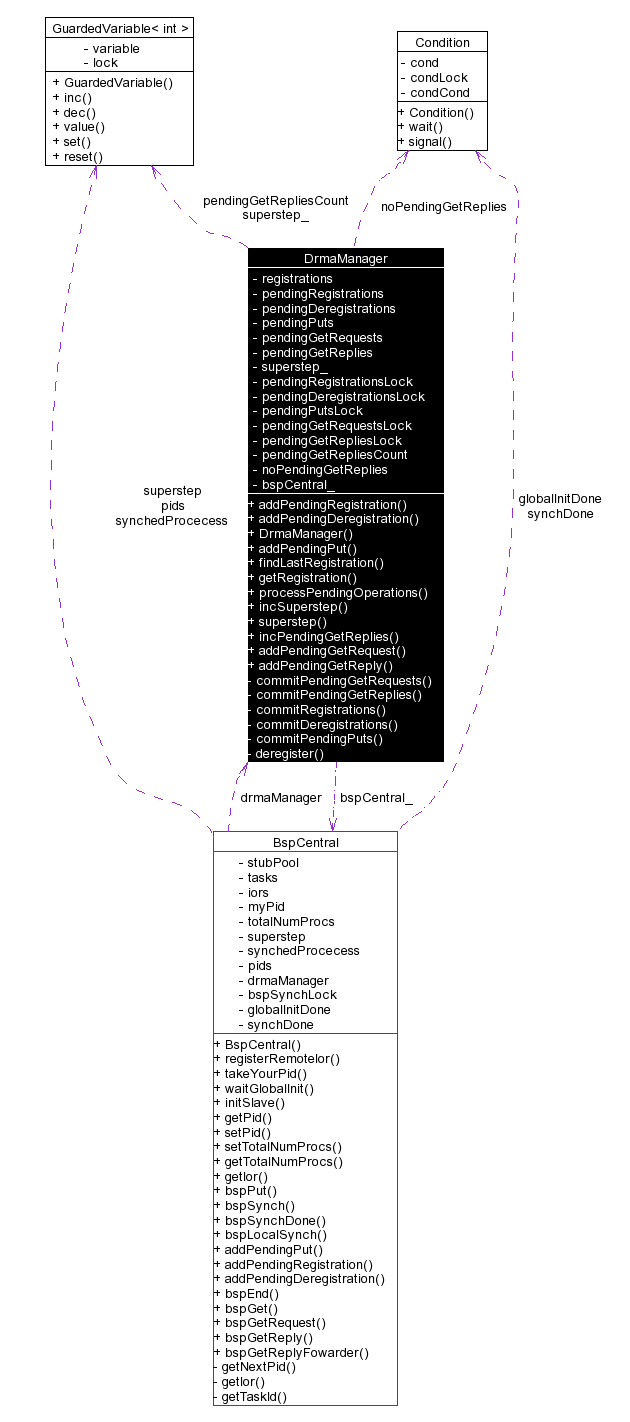
#include <DrmaManager.hpp>
Collaboration diagram for DrmaManager:

DrmaManager keeps track of pending puts and gets, and also maintains the BSP registration stack.
|
|
Creates a DrmaManager Object. |
|
|
Add a BSP deregistration request that will become effective at next barrier
|
|
|
Adds a reply to one of our bsp_get requests
|
|
|
Adds a bsp_get request that will be processed by the end of the superstep
|
|
|
Adds a bsp_put request to the pending bsp_put queue.
|
|
||||||||||||
|
Add a BSP registration that will become effective at next barrier
|
|
|
Commit pending deregistrations. |
|
|
Makes effective all bsp_get requests that were replied during the last superstep |
|
|
Reply to any bsp_get requested during the last superstep |
|
|
Commit pending puts. |
|
|
Commit pending registrations. |
|
|
Removes a registration from the DRMA registration stack
|
|
|
Returns the last registration for a given memory address.
|
|
|
Returns a BSP registration
|
|
|
Increments the number of bsp_get replies that we expect to receive |
|
|
Increments tthe superstep |
|
|
Called at the end of the superstep, commits all pending operations. |
|
|
Returns the current superstep |
|
|
Necessary in order to call methods on remote tasks |
|
|
Indicates if wether or not there are pending replies |
|
|
Pending deregistrations that will become effective on the next superstep |
|
|
Lock for container access |
|
|
replies to the bsp_get requests made by the local task |
|
|
Number of expected replies to the bsp_get requests. We need to be sure that we received all replies before starting the next superstep |
|
|
Lock for container access |
|
|
bsp_get requests that will be replied at the end of the superstep |
|
|
Lock for container access |
|
|
Pending puts that will become effective on the next superstep |
|
|
Lock for container access |
|
|
Pending registrations that will become effective on the next superstep |
|
|
Lock for container access |
|
|
BSP Registration "stack" |
|
|
Current superstep |
 1.3.3
1.3.3